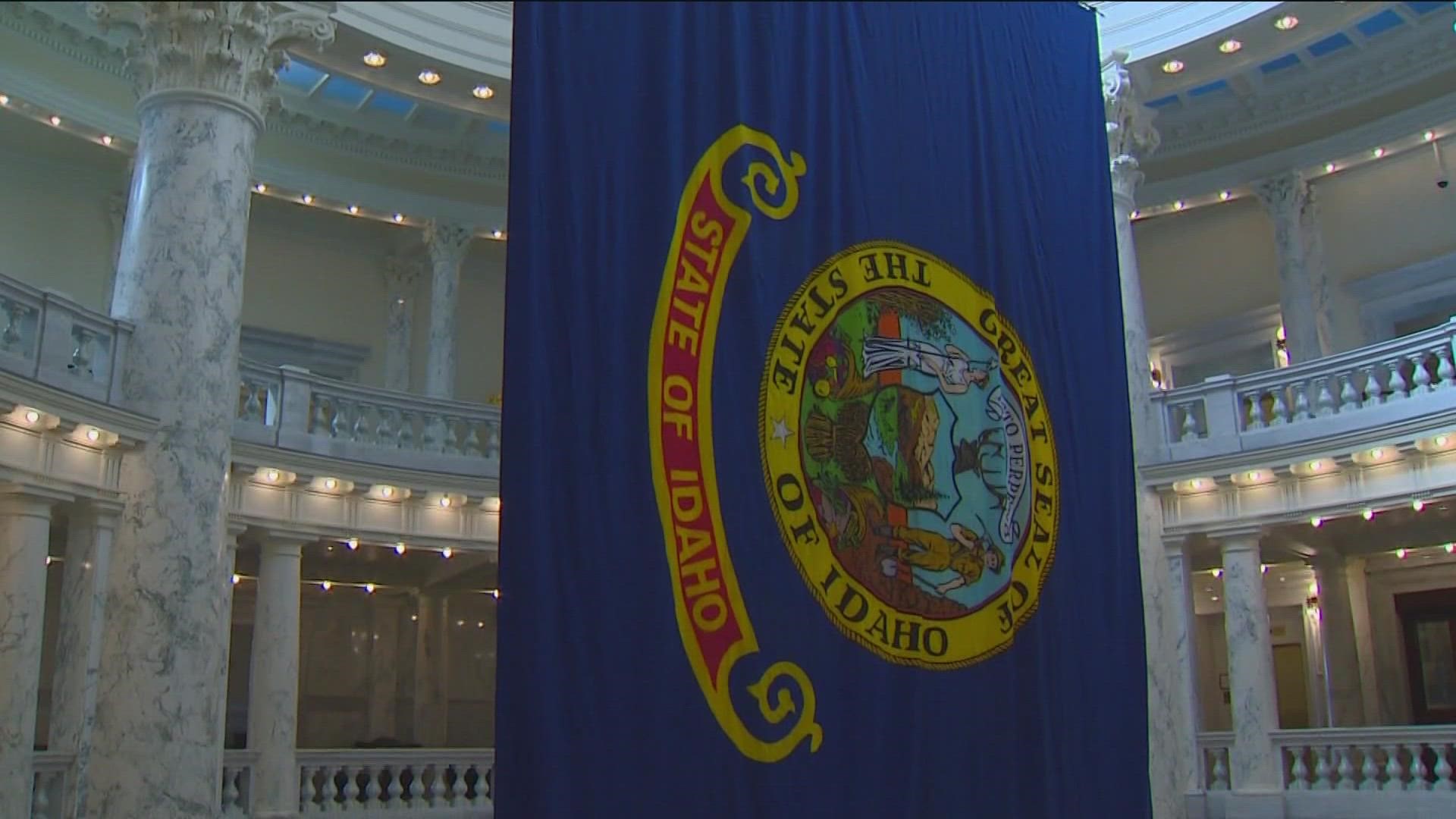BOISE, Idaho — By the end of this week, the State of Idaho could be preparing to send another round of rebate checks to Idaho tax payers. The proposal: a tax rebate of 10% of tax amounts paid in 2020 or $300 for individual filers, whatever amount is greater. The idea was announced by Governor Brad Little last week. This week, Idaho lawmakers will vote on the package that includes rebate checks, income tax cuts, and investments into public education.
This is all in the name of addressing inflation, something Idaho families have struggled with for months. University of Idaho economics expert, Clinical Associate Professor of Economics Professor Steven Peterson, explains the real impact of more than 8% inflation on the average Idaho family.
“There would be a loss of purchasing power of about $5,000 for a typical family as a result of the inflation,” Peterson said.
Over the past few years there has been a lot of conversation about stimulus checks and inflation, it’s a popular argument that repeated Federal stimulus money has accelerated inflation rates. Peterson explains, this proposal is very different than federal COVID checks.
“Inflation ultimately is caused by too much money in the system and that is controlled by the central bank. What we're talking about here is fiscal policy spending, and that does not have much impact on inflation,” Peterson said.
So, unlike the federal government printing more money for checks, the proposal in Idaho is to return tax dollars.
“The way to look at this is, they're reallocating spending. They're not creating new money the way the central bank does and injecting it into the economy. These kind of rebate checks, these kinds of processes are self-limiting by their nature. And so I don't see this as being inflationary or causing inflation,” Peterson said.
So, fears of the rebate program worsening inflation in Idaho seem unfounded. The proposed legislation isn’t a simple fix to the inflation issue Idahoans are seeing, but Peterson says it is impactful, especially for lower income families.
“Rebates going to families will help offset the loss of real income as a result of the overall inflation rate. There are some simplifying assumptions, but for a typical family, the loss of purchasing power, if this 8.5% holds out for the entire year, will be around $5,000,” Peterson said.
So, what could the real impact of rebate checks look like? On a large scale, not much, but on the individual or family level, extra money in the pockets of Idahoans could make a big difference right now. Peterson has two easy examples:
“If we look at food and energy, which impact all Idaho families, but especially the low-income families, that food is now hovering around 11% increase,” Peterson said. “So, this could be very helpful to consumer food budgets. And then, as we all know, although gas prices are falling, it still shows a 32.9% increase over where it was a year ago.”
Experts like Peterson do caution, in general, about creating new government investment programs as the American economy treads towards economic downturn. However, just the rebate check concept is considered low risk.
“Any programs that you make permanent during an economic expansion such as tax relief or an increase in spending programs, they may turn around and come back and bite you when the economy goes off in a recession and you discover you don't have enough money to pay from the rebate part of this,” Peterson said. "It's going to help Idaho families. In a sense, they're getting some of their tax dollars back. So it's hard to argue with that.”
Join 'The 208' conversation:
- Text us at (208) 321-5614
- E-mail us at the208@ktvb.com
- Join our The 208 Facebook group: https://www.facebook.com/groups/the208KTVB/
- Follow us on Twitter: @the208KTVB or tweet #the208 and #SoIdaho
- Follow us on Instagram: @the208KTVB
- Bookmark our landing page: /the-208
- Still reading this list? We're on YouTube, too:
Download the KTVB mobile app to get breaking news, weather and important stories at your fingertips.

